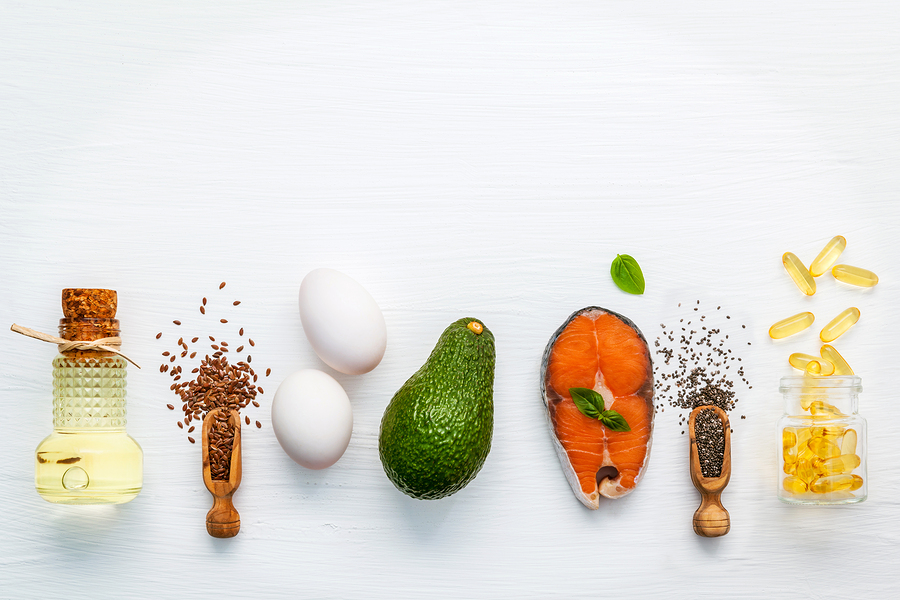One of the most common weight-loss and diet misconceptions is that food rich in protein should be avoided because they contain high amounts of calories. On the contrary, adopting a high-protein diet has numerous benefits. For one, it provides the much-needed energy than can otherwise be supplied by carbohydrates. Eating more protein can significantly lessen the intake of carbohydrates. Among the more popular diets is the Atkins regimen which recommends that the majority of calories ingested be sourced from lean proteins. Other diet plans vary as to the distribution of calorie percentages among the meals throughout the day. For instance, the Paleo diet promotes increased consumption of protein-rich foods to about 1.2 to 1.6 grams per kilogram range and suggests that larger portions of proteins are consumed during breakfast and lunch.
Why is Protein Important?
Proteins are vital components of every cell in the human body. Protein molecules act as building blocks to support various critical functions including muscle growth, digestion, hormonal balance, metabolic functions, tissue repair, enzyme production, blood sugar regulation, blood pressure stabilization, mood regulation, and neurological functions.Proteins may be described as complex combinations or long chains of small compounds called amino acids. Amino acids can be supplied by various food types such as meat, eggs, fish, beans, nuts, and dairy products. Because protein plays a critical role in the body, food types that are rich in amino acids should be integrated into one’s daily diet. In fact, proteins are classified as a “macronutrient” which means that the body needs larger quantities of it in order to function optimally. When the body has an amino acid deficiency, a person may suffer from unstable blood sugar levels, weight gain, lower muscle mass, lack of concentration and memory, mood swings, low energy levels, muscle and joint pain, and slow wound healing.
Advantages of a High-Protein Diet
Eating the right amount of protein from healthy sources is important for the body to function normally.
Here are some of the benefits of a high-protein diet:
1. Promotes muscle building
The muscle tissues are composed of proteins. Adopting a diet that is high in protein promotes muscle growth and improves the body’s strength. This is why those who practice resistance training or body building consume larger portions of protein-rich foods and take protein shakes or supplements.
Protein is important to maintain muscle mass and support tissue recovery after physical activities. When the muscles are being trained, they are purposely being broken down and the body has increased protein needs to sustain the repair of the damaged cells and to replace them with newer and stronger muscles.
Eating a protein-rich diet also prevents muscle loss or muscle atrophy that can occur due to weight loss. In addition, it supports the strengthening of tendons, ligaments, and other tissues.
2. Speeds up repair of tissues after injury
Since proteins are the primary building blocks of the body’s tissues, increasing the intake of protein after an injury can speed up recovery. Foods that are rich in protein can help facilitate the repair and regeneration of damaged cells and tissues.
In addition, consuming foods that are loaded with proteins can also promote glowing skin, healthier nails, and shinier hair.
3. Improves bone density
Several studies have established the correlation between a high-protein diet and optimum bone health. The amino acids in protein enhance bone density, supports the repair of broken bones or fractures, boosts calcium absorption, prevents bone weakness, and reduces the risk of developing osteoporosis.
Osteoporosis is a condition that is common among the elderly who consume lower protein levels. Eating lesser proteins negatively affects the calcium and phosphate metabolism which can lead to bone weakness.
4. Boosts weight loss
Observing a high-protein diet can help a person lose weight faster. When incorporated with a restricted carbohydrate intake, the body is compelled to burn the excess fats stored to supply the energy. This process accelerates weight loss.
It has also shown to generally increase metabolism rates to facilitate the burning of larger amounts of calories. Consuming more protein can help a person burn between 80 to 10 calories each day.
Some research investigations have found that dieters who consume more protein lose weight at a faster rate compared to those who don’t. They also gain the added benefit of having an improved overall body composition. Thus, there is evidence to suggest that adopting a high-protein diet coupled with lower carbohydrate intake is an effective strategy for weight loss.
5. Reduces hunger and food cravings
One of the major challenges in maintaining a diet plan is warding off hunger and food cravings. As the body adjusts to a lower calorie intake, it tends to produce more of the hunger hormone called ghrelin.
Protein helps to regulate the production of ghrelin and to enhance the satiety hormone called peptide YY. Increasing the consumption of food types that are rich in protein keeps one feeling satiated for a longer period of time. This prevents a person from overeating during meals and from snacking on high-calorie products such as carbo-loaded cookies or pastries.
This is also one of the reasons why a high-protein diet supports weight loss as discussed above. Because eating a larger portion of protein fills up a person quickly, he is less inclined to consume fats or carbohydrates. It is recommended that dieters who aim for faster weight loss eat about 1.6 kilograms of protein a day.
6. Lowers blood pressure and promotes heart health
An increased intake can help regulate blood pressure levels among patients diagnosed with hypertension. It also reduces the risk of stroke, cardiac diseases, kidney diseases, diabetes, and obesity.
Some studies have found that substituting carbohydrates for proteins can result in lower bad cholesterol and triglyceride levels. This prevents or delays the onset of some lifestyle diseases.
7. Stabilizes blood glucose levels
Carbohydrates require higher amounts of insulin to be metabolized compared to proteins. Consuming foods that have higher glycemic indices causes a rise in blood sugar levels that eventually trigger the glycation process or the accumulation of sugar molecules in the blood.
On the other hand, proteins affect the insulin and blood sugar levels very minimally and in fact, can slow down the metabolism of sugar. Shifting to a high-protein diet can prevent the occurrence of prediabetes, type 2 diabetes, and obesity.
8. Enhances brain functions and cognition
Amino acids are essential in promoting concentration, memory, focus, and energy. Proteins aid in the production and maintenance of enzymes and hormones that support learning and memory. Eating a good portion of healthy proteins for breakfast prepares one to store information and learn new ideas throughout the day.
Low concentrations of protein in the daily meals can cause fatigue, loss of concentration, and mind sluggishness.
9. Improves mood
One study that was published in 2007 found that those who observed a diet that is rich in protein had better moods, improved self-esteem, and experienced less irritability, anxiety or depression.
Some amino acids from proteins support hormonal balance which regulates moods. They also normalize the dopamine and serotonin levels which contribute to improved moods, calmer dispositions, and positive outlooks.
Thus, a high-protein diet is also beneficial for a person’s mental and psychological well-being.
10. Slows down aging and promotes longevity.
As the body ages, it becomes less capable of synthesizing amino acids. As a result, the muscle mass decreases while the fats tend to accumulate. The shrinking of the muscles due to aging is known as sarcopenia, which is the leading cause of bone fractures among the elderly.
Some studies have found that a diet that is high in amino acids can both prevent and treat sarcopenia. This slows down the aging process by maintaining muscle mass and strong bones despite advancement in years.
A high-protein diet also prevents amino acid deficiencies that can result in cataracts, heart diseases, fatigue, and memory decline.
In addition, protein foods support glutathione synthesis which encourages cell renewal and detoxification. An adequate supply of protein prevents oxidative stress which is a key contributor to age-related illnesses including Alzheimer’s disease, Parkinson’s disease, cystic fibrosis, liver disease, cancer, and a number of viral infections.
Switching to a high-protein diet and practicing an active lifestyle are some of the best ways to delay the aging process. The diet plan will also ensure that a person retains high levels of energy needed for normal functioning.
While nutritionists often recommend the observance of a balanced meal that includes a variety of food sources, several research investigations have proven that a high-protein diet can greatly benefit a person’s body composition, strength, and overall health. It produces more results than fad diets whose effects may not be sustained over a long period of time.
It may be time to consider shifting to a diet that is rich in protein sources such as poultry, meat, nuts, legumes, and whole grains. Integrate fruits and vegetables that are loaded with antioxidants, vitamins, and minerals to promote optimal health, support normal functions and delay aging.
If you want to know what foods will help you shape up and shed inches while providing natural cure to illnesses, then check out the Best Foods That Rapidly Slim & Heal In 7 Days program.




